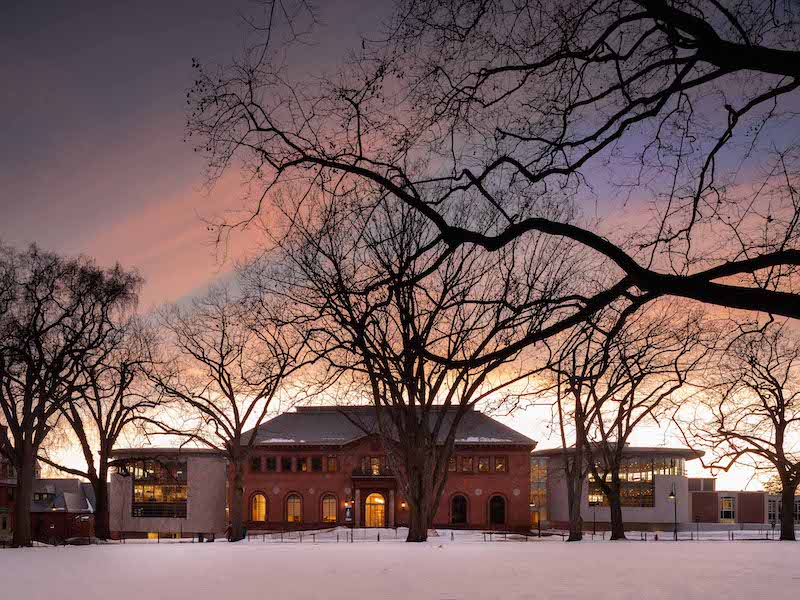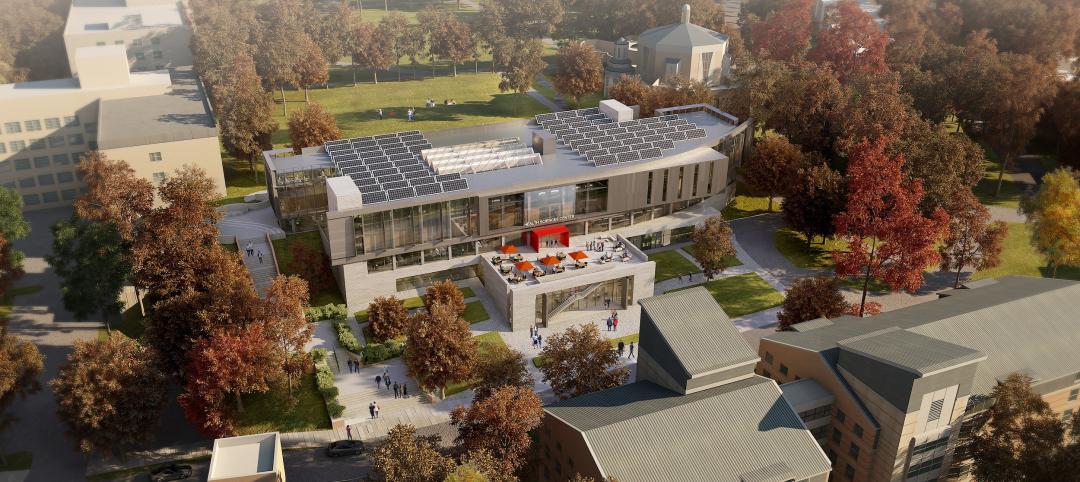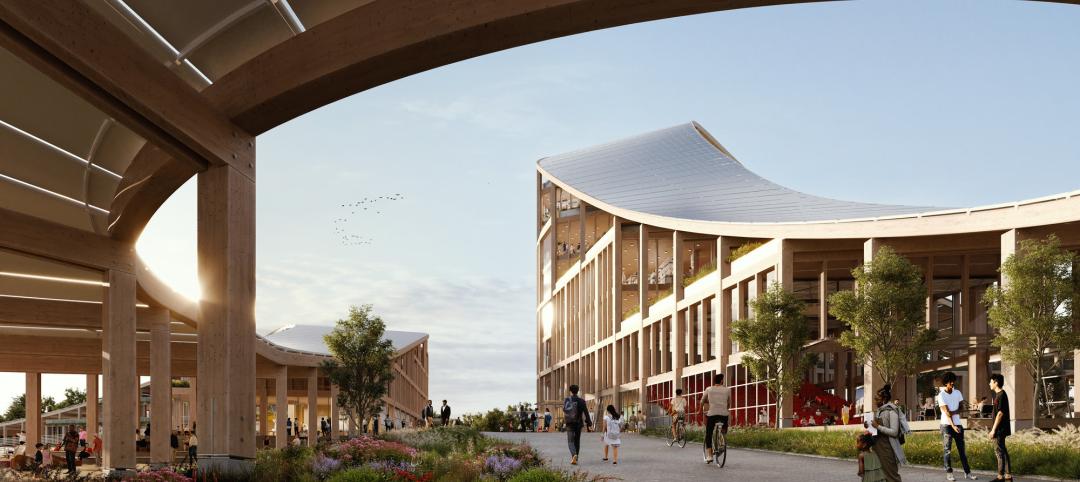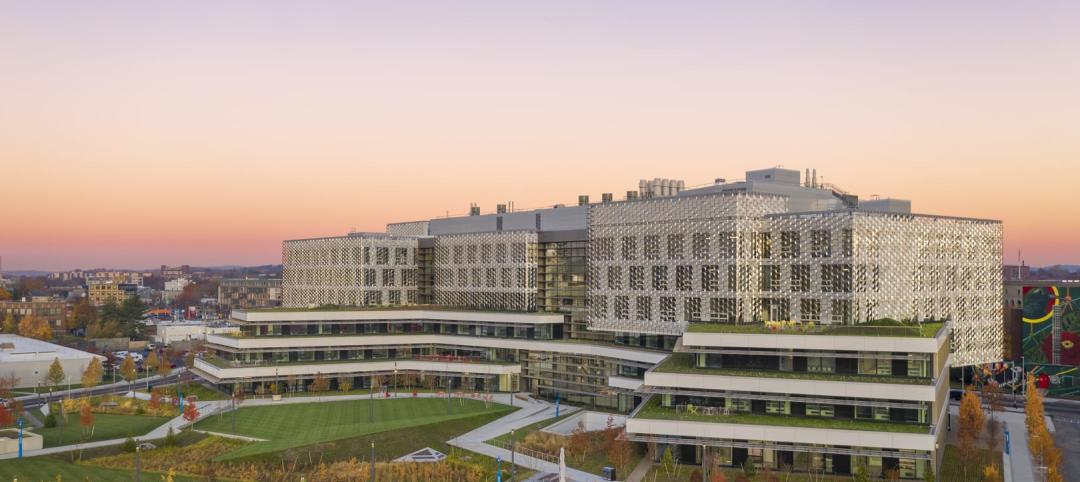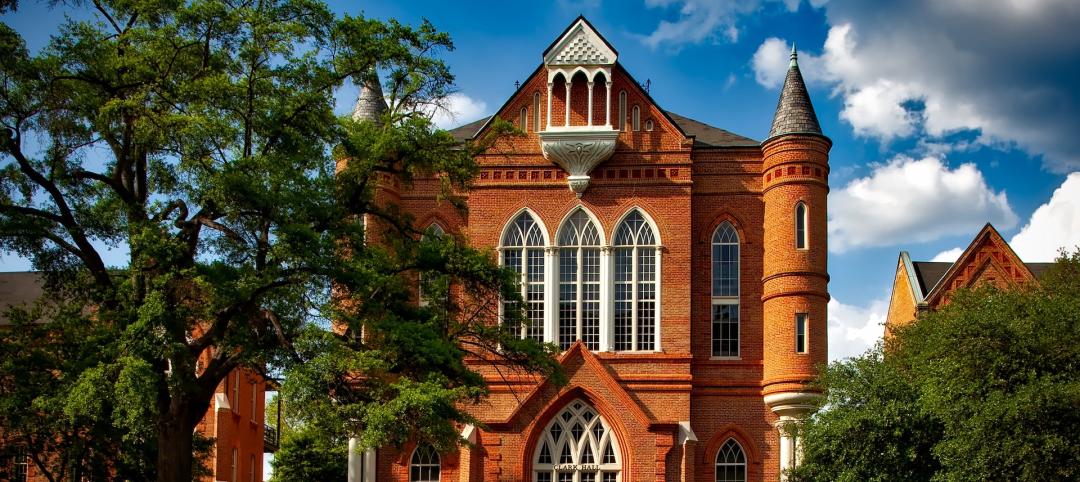Shawmut Design and Construction has recently completed the $120 million renovation of Smith College’s Neilson Library in Northampton, Ma. The project took the original, outdated building and reimagined it as the energy-efficient, intellectual heart of the campus.
In partnership with architectural designer Maya Lin and principal architect Shepley Bulfinch, the 200,000-sf project restored the building and created an energy-efficient design and flexible collaborative workspaces.
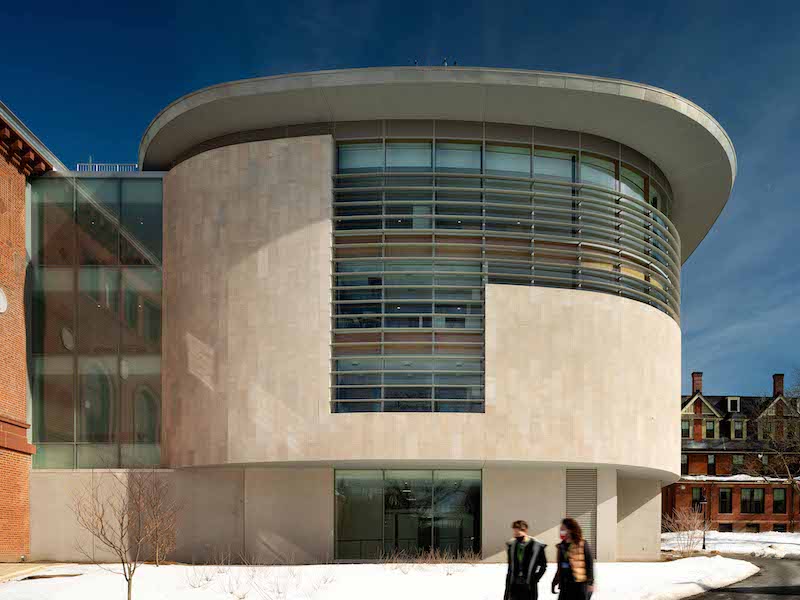
The building’s main entrance opens into a large atrium that features a four-story oculus. The building’s use of glass, wood, and stone works with the design to promote harmony with the surrounding exterior landscape, designed by Edwina von Gal with Ryan Associates.
The original 1909 facade is incorporated into the reimagined building, which is composed of three distinct sections: the central core and two new wings. The new wings are dubbed jewel boxes for their curved, light-filled design made from a mix of masonry, wood, and glass.
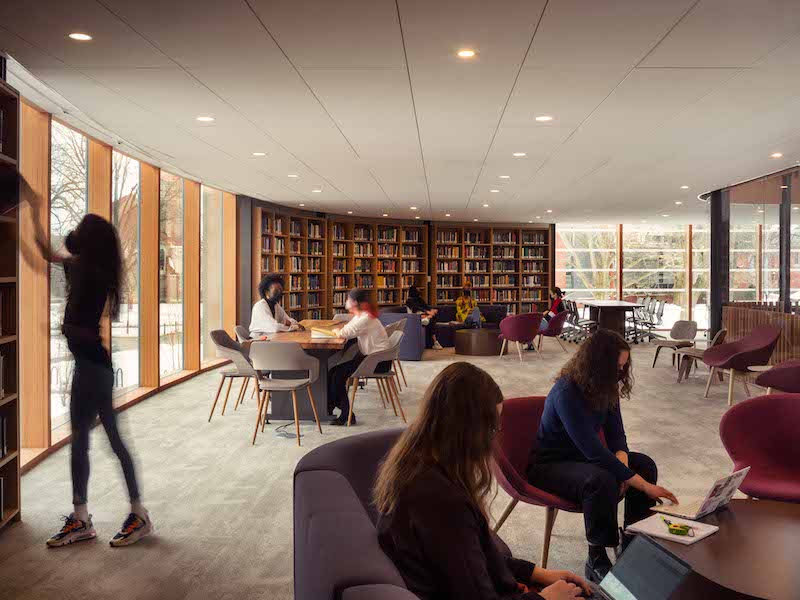
The north wing, named for Smith’s ninth president, Ruth J. Simmons, comprises spaces to support active learning and innovation. The south wing, named in honor of Smith’s eighth president, Mary Maples Dunn, brings together special collections (the Sophia Smith Collection, Rare Books, and College Archives) into one climate-controlled area.
SEE ALSO: MiraCosta Community College to receive new Chemistry and Biotechnology Building
Flexible, collaborative workspaces include the Learning Commons, the Jill Ker Conway Innovation and Entrepreneurship Center, and the Special Collections Seminar Room. A series of classroom spaces, a reading room, study areas, a sunken courtyard, and event spaces, and an outdoor amphitheater with shaded seating are also included.
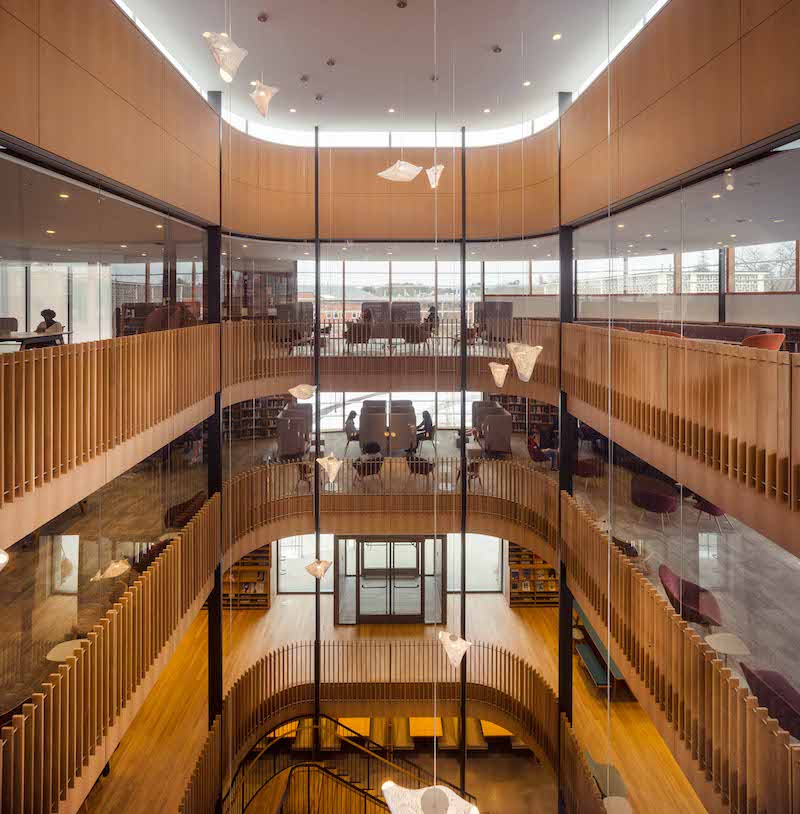
A Digital Media Hub offers studios for students to record podcasts, videos, and use other digital media; self-service labs for students to use technologies such as spatial analysis, gaming software, survey software, and GIS; a User Experience Lab for research and usability testing; and access to large-format and 3D printers.
Additionally, the Neilson Library is now connected to the recently renovated Alumnae Gym via an interior walkway. The Alumnae Gym provides additional learning spaces that are open 24/7.
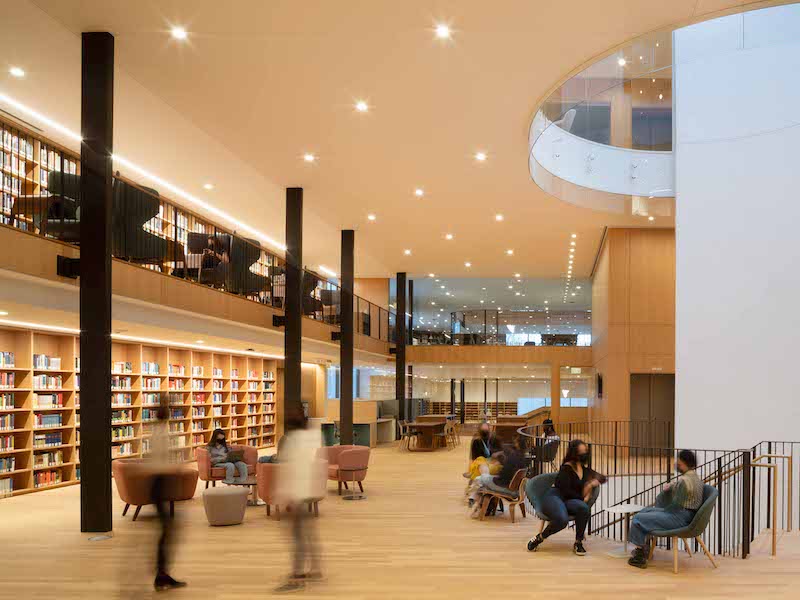
Sustainability features include a high-performance building envelope, advanced daylighting strategies, and materials that promote health and wellness. Throughout, the library incorporates materials that promote health and wellness by not containing harmful chemicals, as well as local, regional, and recycled products. The building has the ability to become an ‘all-electric’ complex and is pursuing LEED V.4, Gold Accreditation.
Related Stories
University Buildings | May 5, 2023
New health sciences center at St. John’s University will feature geothermal heating, cooling
The recently topped off St. Vincent Health Sciences Center at St. John’s University in New York City will feature impressive green features including geothermal heating and cooling along with an array of rooftop solar panels. The geothermal field consists of 66 wells drilled 499 feet below ground which will help to heat and cool the 70,000 sf structure.
Mass Timber | May 1, 2023
SOM designs mass timber climate solutions center on Governors Island, anchored by Stony Brook University
Governors Island in New York Harbor will be home to a new climate-solutions center called The New York Climate Exchange. Designed by Skidmore, Owings & Merrill (SOM), The Exchange will develop and deploy solutions to the global climate crisis while also acting as a regional hub for the green economy. New York’s Stony Brook University will serve as the center’s anchor institution.
University Buildings | Apr 24, 2023
Solving complicated research questions in interdisciplinary facilities
University and life science project owners should consider the value of more collaborative building methods, close collaboration with end users, and the benefits of partners who can leverage sector-specific knowledge to their advantage.
Green | Apr 21, 2023
Top 10 green building projects for 2023
The Harvard University Science and Engineering Complex in Boston and the Westwood Hills Nature Center in St. Louis are among the AIA COTE Top Ten Awards honorees for 2023.
Higher Education | Apr 13, 2023
Higher education construction costs for 2023
Fresh data from Gordian breaks down the average cost per square foot for a two-story college classroom building across 10 U.S. cities.
Market Data | Apr 11, 2023
Construction crane count reaches all-time high in Q1 2023
Toronto, Seattle, Los Angeles, and Denver top the list of U.S/Canadian cities with the greatest number of fixed cranes on construction sites, according to Rider Levett Bucknall's RLB Crane Index for North America for Q1 2023.
University Buildings | Apr 11, 2023
Supersizing higher education: Tracking the rise of mega buildings on university campuses
Mega buildings on higher education campuses aren’t unusual. But what has been different lately is the sheer number of supersized projects that have been in the works over the last 12–15 months.
Contractors | Apr 10, 2023
What makes prefabrication work? Factors every construction project should consider
There are many factors requiring careful consideration when determining whether a project is a good fit for prefabrication. JE Dunn’s Brian Burkett breaks down the most important considerations.
Smart Buildings | Apr 7, 2023
Carnegie Mellon University's research on advanced building sensors provokes heated controversy
A research project to test next-generation building sensors at Carnegie Mellon University provoked intense debate over the privacy implications of widespread deployment of the devices in a new 90,000-sf building. The light-switch-size devices, capable of measuring 12 types of data including motion and sound, were mounted in more than 300 locations throughout the building.
Architects | Apr 6, 2023
New tool from Perkins&Will will make public health data more accessible to designers and architects
Called PRECEDE, the dashboard is an open-source tool developed by Perkins&Will that draws on federal data to identify and assess community health priorities within the U.S. by location. The firm was recently awarded a $30,000 ASID Foundation Grant to enhance the tool.


